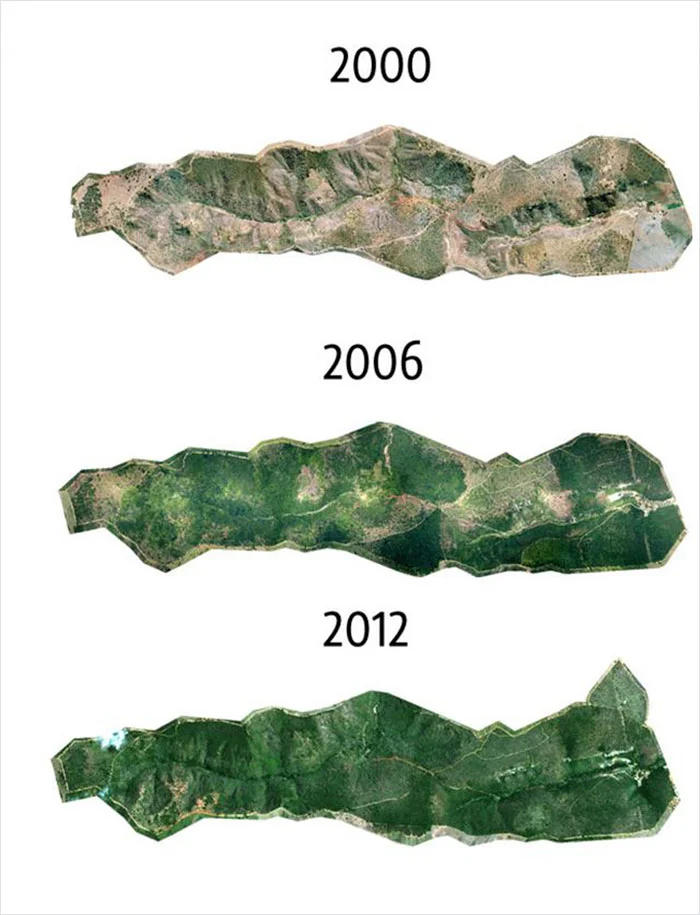What was once pasture is now a forest.
www.boredpanda.com/brazilian-couple-recreated-forest-sebastiao-leila-salgado-reforestation/
institutoterra.org/o-instituto/
Instituto Terra is a non-profit civil organization founded in April 1998. It is focused on the environmental restoration and sustainable rural development of the Doce River Valley. The region was originally covered by the Atlantic Forest and covers municipalities of Minas Gerais and Espírito Santo bathed by the Doce River Basin.
The Rio Doce Basin is one of the most important in the Brazilian Southeast. In its domain live more than four million people, who face the consequences of deforestation and the disordered use of natural resources, such as soil erosion and water scarcity.
The Terra Institute is the result of the initiative of the couple Lélia Deluiz Wanick Salgado and Sebastião Salgado, who faced the scenario of environmental degradation in which the old cattle farm acquired from the family of Sebastião Salgado – like the many other rural units located in the mining city of Aimorés – made a decision: to return to nature that decades of environmental degradation destroyed.
The first step was to transform the area into a Private Reserve of Natural Heritage – RPPN Fazenda Bulcão. The title was obtained in an unprecedented way in October 1998, being the first environmental recognition granted in Brazil to a completely degraded property, given the commitment to be reforested.
The first planting was carried out in November 1999 and was attended by students from schools in the municipality of Aimorés, in Minas Gerais. Thus was born the largest proposal of the Earth Institute: to share with the community of its surroundings all the knowledge acquired in the environmental restoration of the 608.69 hectares of the RPPN Fazenda Bulcão.
To achieve this goal develops projects ranging from forest restoration and nascent protection to applied scientific research and environmental education. The financial support comes from different partners, both from the governmental and private enterprise, as well as from Foundations and individual donors from various countries and other institutions of the Third Sector.
Due to the action of the Earth Institute, thousands of hectares of degraded areas of the Atlantic Forest in the middle Doce River and close to 2,000 springs are in the process of recovery. The former cattle ranch, once completely degraded, today houses a forest with diversity of species of the flora of Atlantic Forest.
The experience proves that with the recovery of green, springs flow again and species of the Brazilian fauna, at risk of extinction, return to have a safe refuge.
avant : institutoterra.org/wp-content/uploads/2020/08/antes-1.jpg
après : institutoterra.org/wp-content/uploads/2023/06/Instituto-Terra-2022-%C2%A9Sebastiao-Salgado-221213-00-00393-scaled.jpg
#ecologie #Bresil #InstitutoTerra
@environnement
